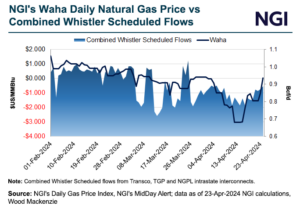Marcellus | E&P | NGI All News Access
‘Absolutely No Plans’ in New York to Permit Fracking by 2015
New York Gov. Andrew Cuomo’s proposed budget for the 2014-2015 fiscal year does not allocate any funding toward regulating the oil and gas industry, and the state’s top regulator added that there are “absolutely no plans” to issue permits for high-volume hydraulic fracturing (HVHF).
Both separate developments strongly suggest that the state’s de facto moratorium on HVHF will continue, despite Cuomo’s assurances that a decision would be forthcoming before the next gubernatorial election in November (see Shale Daily, Dec. 17, 2013; May 29, 2013).
Cuomo unveiled a $137.2 billion budget plan last Monday. On Wednesday, Department of Environmental Conservation (DEC) Commissioner Joseph Martens testified before a joint legislative hearing that the budget contains nothing governing HVHF.
Assemblyman Robert Sweeney (D-Lindenhurst), a longtime foe of fracking (see Shale Daily, Feb. 28, 2013; March 29, 2012; Dec. 2, 2010), kicked off the legislators’ line of questioning directed at Martens with what he coined “an old favorite.”
“Let me ask you if the proposed budget includes any funding relating to the authorization of hydrofracking in New York State — increased staffing levels, permit revenue, anything?” Sweeney asked Martens.
“None whatsoever,” the DEC commissioner replied.
“So does the absence of either revenue or appropriations mean that the department does not plan to finalize the supplemental generic environmental impact statement [SGEIS] or issue permits during the fiscal year?” asked Sweeney.
“We have absolutely no plans to do so,” Martens said.
In September 2012, Martens asked Department of Health Commissioner Nirav Shah to complete a health impact analysis of HVHF before the DEC completed an SGEIS on the practice (see Shale Daily, Sept. 24, 2012).
According to reports, Martens told the media after the hearing that it was “extremely unlikely” that the DEC would issue HVHF permits during the upcoming fiscal year, and said there was “no timetable” for Shah to complete his review.
“There are no funds in the budget that have anything to do with HVHF,” Martens told NPR. “Logically, the consequence of that is we have no plans to issue permits…until Dr. Shah finishes his review, we won’t be proceeding.”
During the Q&A session, another fracking foe, Sen. Cecilia Tkaczyk (D-Kingston), asked Martens if he knew if any wastewater from fracking — especially from out-of-state sources, particularly Pennsylvania — was being disposed into New York’s landfills (see Shale Daily, Nov. 12, 2012).
“It’s not produced water or wastewater per se; it’s drilling waste, which is primarily the rock and the subsurface material that is ground up when a well is drilled,” Martens replied. “It’s mostly rock and water and that can actually be buried on-site.
“The primary concern with that type of waste is radiation because drilling does occur in formations where radiation occurs. All of the landfills have radiation detectors, and we have a very explicit protocol that they have to do when they bring those loads of waste to the landfill. I believe we have a very good handle on this.”
Martens also told Tkaczyk that the DEC issues beneficial use determinations (BUD) for using brine from oil and gas drilling as a deicing agent on roads and highways. He said the brine comes from wells in New York but reminded Tkaczyk that there are no HVHF wells in the state, only conventional and unconventional wells not classified as HVHF.
The DEC commissioner told Tkaczyk that he was not aware of any out-of-state brine being spread on roads in New York, or of any water withdrawals being sent to other states from fracking operations there.
“We have a new water withdrawal law in New York,” Martens said. “If they have the capacity to extract more than 100,000 gallons a day, then it triggers the need for a water withdrawal permit from us. So we would know if someone is going to withdraw those amounts, and we would know the use and the destination.”
Martens told the legislators that in the wake of a series of recent crude oil train derailments, Cuomo issued an executive order on the matter last Tuesday night (see Shale Daily, Jan. 23).
According to Martens, the order directs “DEC and our sister agencies to petition our federal partners, regarding the shipment of petroleum products, to ensure New Yorkers are safe and the state’s irreplaceable natural resources are protected.
“The order also directs the agencies to evaluate the state’s spill prevention, response and inspection programs governing the rail, ship and barge transportation of crude oil and other petroleum products.”
Martens said the DEC would report any recommendations to Cuomo on or about April 30.
© 2024 Natural Gas Intelligence. All rights reserved.
ISSN © 2577-9877 | ISSN © 2158-8023 |

